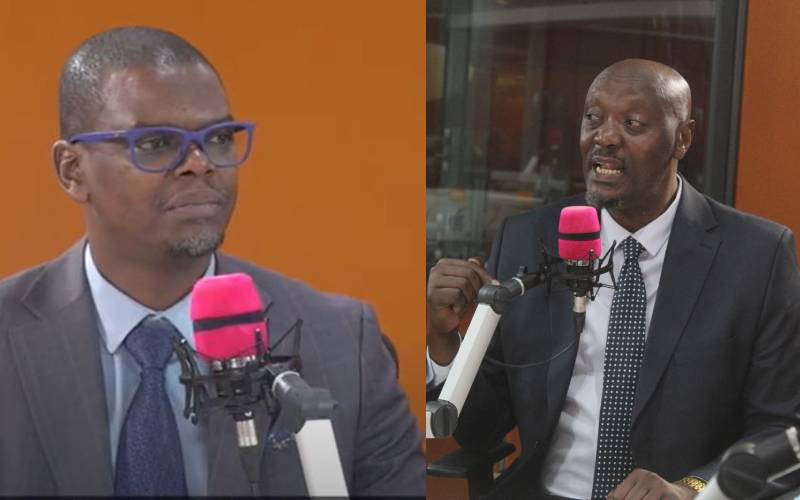
Private healthcare providers have warned that Kenya’s universal health coverage plan risks collapse due to poor design, delayed reimbursements and funding shortfalls a year after the launch of the Social Health Authority (SHA).
Speaking on Spice FM, Rev. Joseph Kariuki, Vice Chairman of the Rural and Urban Private Hospitals Association (RUPHA), observed that many hospitals are on the brink of closure as the government continues to delay payments under the Primary Health Care (PHC) fund.
“Every two steps we make forward, we make three backwards. We thought by now the system would run itself, but the deeper we go, the more difficult the issues become. Some of these problems are not even systemic; they are designed,” noted Kariuki.
Kariuki explained that many facilities have not been paid since June, saying the unpaid bills have crippled operations.
“We have salaries to pay, rent, loans and equipment costs. We cannot continue running hospitals without reimbursement.”
RUPHA estimates the government owes private hospitals over Sh80 billion, a backlog Kariuki described as crippling.
He added that hospitals continue to treat patients under SHA directives but struggle to restock supplies as creditors demand cash.
- Government to pay Sh5.3 billion NHIF arrears to hospitals
- Ruto urges Kenyans to report hospitals that charge SHA members
- What counties must do for SHA to work - Miskellah
- Kenya to crack down on illegal pharmacies from 2026
Keep Reading
Kariuki also faulted the structure of SHA’s three funding streams, the Primary Health Care Fund, the Emergency and Chronic Illness Fund and the Social Health Insurance Fund (SHIF), accusing the authority of diverting SHIF contributions to plug gaps elsewhere.
“We proposed that SHIF money be ring-fenced since it’s citizens’ contributions, but they discarded that idea,” he observed, adding, “Now SHA uses SHIF to pay PHC and ECCIF, and that money cannot be enough.”
He noted that the authority collects about Sh5 billion monthly but pays out Sh9 billion, leaving a Sh4 billion deficit. RUPHA has proposed encouraging more Kenyans to contribute to the scheme to help bridge the gap.
Nyeri Town MP Duncan Mathenge, a member of the National Assembly’s Health Committee, agreed that SHA’s greatest challenge remains funding.
“The big question that nobody has addressed, even during the NHIF era, is adequate resourcing. For us to achieve healthcare for all under Article 43 of the Constitution, we must mobilise enough resources,” said Mathenge.
Mathenge suggested introducing a dedicated health tax similar to the fuel levy used for road maintenance to ensure a steady flow of funds to the PHC.
“Can we start raising targeted funds from taxpayers ring-fenced directly for health services?” he asked.
However, Mathenge urged private hospitals to also address fraud within their ranks.
“RUPHA cannot demand payments with passion while ignoring rogue elements among its members. They must also clean up their house,” he remarked.
Kariuki defended the association, saying it remains the only healthcare group with a formal anti-fraud policy that members must sign before joining.
“We are very committed to fighting graft. Out of 1,800 files taken to the DCI, only seven facilities are before the court,” he explained.
“We have mechanisms to punish any member involved in fraud and will cooperate fully with government investigation,” he added.
He criticised the Ministry of Health for what he called a bungled process of prosecuting alleged fraudsters.
“Every person is presumed innocent until proven guilty,” Kariuki noted. “Some facilities were suspended for 90 days, but have not received audit reports. Are we really fighting fraud or just playing games?”
Both leaders agreed that dialogue between the government and healthcare providers is urgently needed.
Kariuki urged Health Cabinet Secretary Aden Duale to prioritise direct engagement over public pronouncements.
“These issues can be solved in a boardroom, not behind a microphone,” he stated.
“Let’s sit down, fix what’s broken and make healthcare truly accessible to all Kenyans,” he noted.
 The Standard Group Plc is a multi-media organization with investments in media
platforms spanning newspaper print
operations, television, radio broadcasting, digital and online services. The
Standard Group is recognized as a
leading multi-media house in Kenya with a key influence in matters of national
and international interest.
The Standard Group Plc is a multi-media organization with investments in media
platforms spanning newspaper print
operations, television, radio broadcasting, digital and online services. The
Standard Group is recognized as a
leading multi-media house in Kenya with a key influence in matters of national
and international interest.











